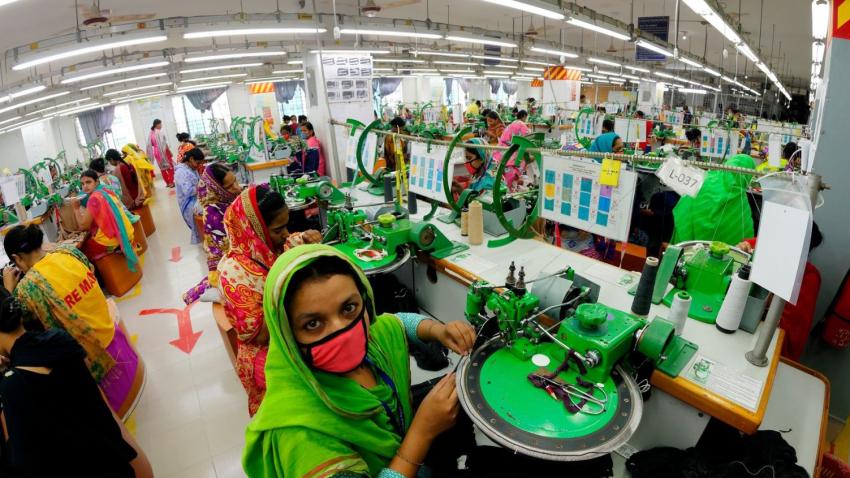Asian countries graduating from the least developed countries (LDCs) category need to bolster their textile and clothing sectors, particularly in the wake of COVID-19, recommends a joint report by the World Trade Organization (WTO) and the United Nations.
The report, “The Textile and Clothing Sector in Asian Graduating Least Developed Countries: Challenges and Ways Forward,” analyses the situation of countries such as Bangladesh, Lao People’s Democratic Republic and Nepal, where textile and clothing are major industries that will be significantly impacted by graduation.
International development and trade partners have been offering support measures to least developed countries in Asia that have allowed their textile and clothing sectors to prosper. But as this international support wanes post-graduation, the adjustment in the textile and clothing industries may well dictate the success of the overall smooth transition.
“The exports of textiles and clothing of graduating LDCs have largely been driven by LDC trade preferences. Examining the impacts of graduation for this sector is crucial for these countries to adapt to the new trading conditions. This joint collaboration is a unique effort of UN agencies and WTO to shed light on ways to fully realize the potential of this sector,” said Taufiqur Rahman, Head of the LDC Unit at WTO.
Combined textile and clothing exports from LDCs in Asia account for eight per cent of the global total, which contracted in 2020 due to the pandemic. The sector is an important source of employment, especially for women. The report notes that graduation presents an opportunity for the countries to develop strategies that can position the sector higher up the global value chain.
Manufacturers consulted for the report said they expected graduation to impact their export performance. In addition to facing higher tariffs, most garment manufacturers rely heavily on imported textiles and will struggle to meet more restrictive Rules of Origin criteria after graduation. Many said they do not have a response plan yet for LDC graduation and are focusing on addressing the impact of the pandemic.
“This timely report sets out important preparatory measures to protect and strengthen the textile and clothing sector, the lifeblood of many LDCs in Asia, during and after graduation. It provides some country-specific insights and serves as a valuable resource for countries and development partners to work together to chart a steady course for a smooth transition from LDC status and to reach critical targets in the final Decade of Action for the 2030 Agenda,” said Roland Mollerus, Secretary of the Committee for Development Policy.
Many major clothing brands and retailers consulted for the report believe that LDC graduation will only modestly affect their sourcing and are planning to expand sourcing from graduating LDCs over the next three to five years. Factors such as workplace safety, working conditions, environmental compliance, innovation and speed to market are increasingly becoming major factors for brands in their long-term sourcing.
The report was produced by the World Trade Organization (WTO), the UN Department of Economic and Social Affairs (DESA), the International Trade Centre (ITC) and the UN Conference on Trade and Development (UNCTAD), bringing together different areas of expertise on LDC graduation and the textile and clothing sector.
Photo credit: ILO/Marcel Crozet

